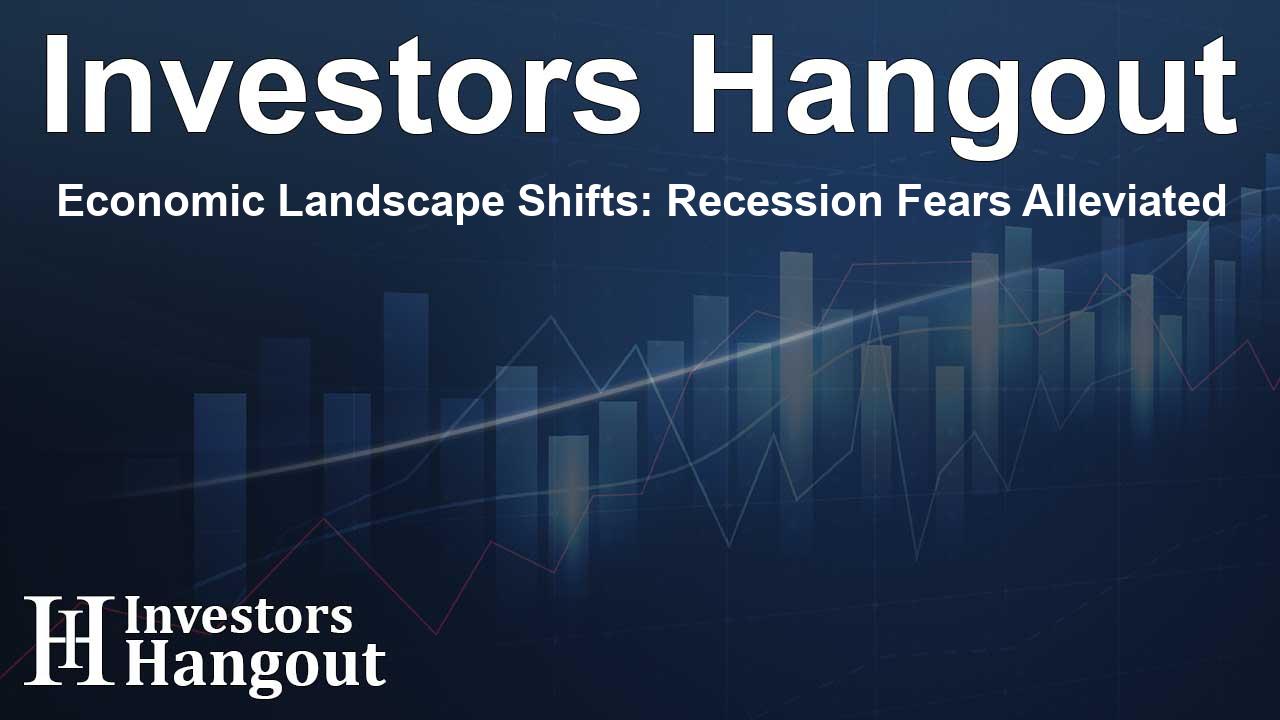Economic Landscape Shifts: Recession Fears Alleviated

Economic Landscape Shifts
Recent developments in the economy suggest a turning point, and many are breathing a sigh of relief. The phantom recession that loomed over the financial landscape seems to have lost its grip on the public and analysts alike. The sentiment reflects a broader sense of optimism, reminiscent of the operatic expressions used to depict despair in clarity—think of Ruggero Leoncavallo's Pagliacci, where the narrative of tragic circumstances resonates with current economic concerns.
The Role of Monetary Policy
Historically, economic expansions have not simply reached an end; they are often cut short by shifts in monetary policies, particularly when inflation threatens to rise. Rudi Dornbusch, a name well-known in macroeconomic circles, illustrated that these expansions tend to be abruptly 'murdered' rather than allowed to die a natural death. This framework has become a valuable lens through which we examine the cyclical nature of economic events.
Current Federal Reserve Actions
Since the Federal Reserve initiated an increase in the federal funds rate in March 2022, there have been widespread predictions about an impending recession. Analysts pointed to indicators like the yield curve's inversion and declines in leading economic indicators as harbingers of doom. However, as observers of the market, we strayed from this consensus, maintaining that a nuanced perspective was warranted given the broader economic context.
The Shift in Economic Forecasts
We noted a significant change in the landscape following the Fed's halt in rate increases in July 2023. Surprisingly, fears of recession that many held at the start of the year melted away as strong employment reports emerged. Predictions about multiple rate cuts needed to stave off a recession seemed overly pessimistic. Our assessment led us to anticipate a more measured approach, knowing full well the economy doesn’t always adhere to doomsday narratives.
Resilient Employment Figures
The resilience of employment figures played a crucial role in shifting the narrative. Recent reports showing stronger-than-expected employment data dispelled many of the previously held fears and the predictions of a sharp economic downturn. Surprisingly, the few remaining doomsayers found their perspective challenged as the reality of the data contradicted their forecasts.
Whispers of Concern
Despite obdurate claims from some economists that a recession was on the horizon, the robust employment numbers put those theories to rest. In many ways, it mirrored how operatic themes can shift from tragedy to unexpected conclusions—proof that the economic narrative is not always fixed. As we move forward, it’s essential to navigate these changes with a clear perspective, acknowledging the variables at play.
The Outlook Ahead
Looking to the future, although we assign a 20% chance of a recession reminiscent of the geopolitical turmoil of the 1970s, the argument that monetary policy shocks will lead to consumer-driven contraction seems increasingly untenable. The ‘phantom recession’ of economic forecasts may have finally been put to rest. The economy seems poised to navigate through challenges without succumbing entirely to pessimism.
A Shift in Mindset
For those who maintain a stringent viewpoint on the economic landscape, it’s time to re-evaluate their stance. With the Federal Reserve exploring potential rate cuts—although perhaps not as aggressive as initially thought—the narrative surrounding economic health takes on a new light. It is essential to keep an eye on upcoming data trends and monetary policy actions, as they will shape the path forward significantly.
Frequently Asked Questions
What does the term 'phantom recession' mean?
The term refers to fears of a recession that persist despite indicators showing economic resilience, suggesting a recession might not materialize as predicted.
How did employment figures impact recession predictions?
Strong employment figures have led to a more optimistic outlook, contrasting earlier predictions of economic downturn due to tightening monetary policies.
What role does the Federal Reserve play in economic expansions?
The Federal Reserve influences economic cycles through monetary policy, adjusting interest rates to either stimulate growth or quell inflation, often leading to significant economic shifts.
Are economists still concerned about a recession?
While some economists maintain concerns regarding a potential recession, stronger-than-expected economic indicators have tempered those fears considerably.
What should we watch for in the coming months regarding the economy?
It is vital to monitor employment data and Federal Reserve policy movements, which will provide insights into the economy's health and direction moving forward.
About Investors Hangout
Investors Hangout is a leading online stock forum for financial discussion and learning, offering a wide range of free tools and resources. It draws in traders of all levels, who exchange market knowledge, investigate trading tactics, and keep an eye on industry developments in real time. Featuring financial articles, stock message boards, quotes, charts, company profiles, and live news updates. Through cooperative learning and a wealth of informational resources, it helps users from novices creating their first portfolios to experts honing their techniques. Join Investors Hangout today: https://investorshangout.com/
Disclaimer: The content of this article is solely for general informational purposes only; it does not represent legal, financial, or investment advice. Investors Hangout does not offer financial advice; the author is not a licensed financial advisor. Consult a qualified advisor before making any financial or investment decisions based on this article. The author's interpretation of publicly available data shapes the opinions presented here; as a result, they should not be taken as advice to purchase, sell, or hold any securities mentioned or any other investments. The author does not guarantee the accuracy, completeness, or timeliness of any material, providing it "as is." Information and market conditions may change; past performance is not indicative of future outcomes. If any of the material offered here is inaccurate, please contact us for corrections.